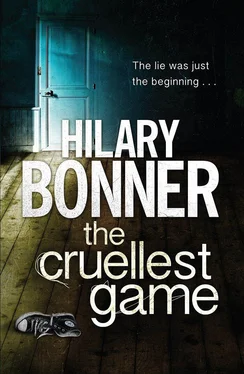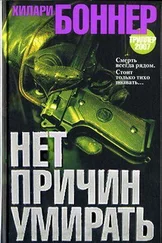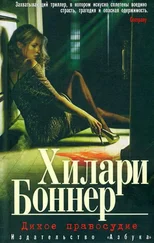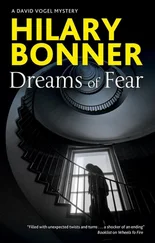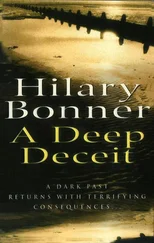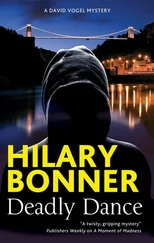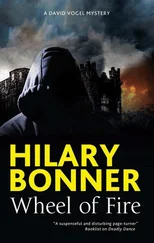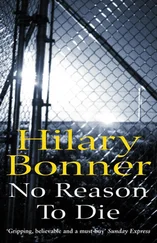I swear I could feel Robert’s eyes burning into me from where he stood in the dock towards the rear of the courtroom. I made myself not look at him.
‘Before your son died, did you ever have any suspicions that all might not be as it seemed in your marriage, Mrs Anderson?’ Pam Cotton asked.
I replied that I had not. ‘Indeed, I’d considered myself to be very fortunate,’ I said. ‘I seemed to have everything: a loving husband, a fine son and a beautiful home.’
‘And after Robbie’s death, when were your suspicions first raised?’
I told her how I had tried to get in touch with Robert to tell him about Robbie, how the Amaco personnel people had appeared not to know of a Robert Anderson, and how they had first mentioned the name Rob Anderton to me. And I explained how I had come to realize that derrickman Rob Anderton and senior drilling engineer Robert Anderson were probably one and the same.
‘Did you confront your husband with this?’ asked Pam.
I nodded. The red-robed judge, Sir Charles Montague, who looked rather younger than a stereotypical idea of a Justice of Her Majesty’s High Court, his face tanned beneath his judicial wig as if he’d recently been on a good holiday, coughed and frowned in my direction.
‘Could you please give an audible answer, Mrs Anderson, for the court record,’ he said.
‘Yes, I did confront my husband.’
‘And how did he respond?’
I told the court how Robert had tried to explain it all away, using his desire to leave his past behind and start a new life with me as an excuse for everything.
‘And at this stage what did he tell you about his marital status?’
‘He told me that he was probably still married to another woman, and that was partly why he’d assumed a false name, but that his wife had left him and disappeared to Australia and he’d absolutely no idea where she was or how to find her. Neither could he, therefore, even be certain that she was alive.’
‘I see,’ Pam Cotton allowed herself a dramatic pause. ‘Perhaps you would now tell the court, Mrs Anderson, how you came to meet and, it seemed, become friends with the woman you knew as Mrs Bella Clooney.’
I told the first dog-walking story, and related how we’d exchanged phone numbers and began to meet quite regularly for walks.
‘But you were never invited to the home of Mrs Bella Clooney?’
‘I wasn’t, no.’ There seemed to be no need to mention my uninvited visits. After all, I had never actually crossed the threshold of number 5 Riverview Avenue.
‘And did your husband ever meet her in your company?’
‘Yes. The night Robbie died. The police wanted me to find someone to be with me. I think it’s routine, isn’t it? We never had many friends, as a family. We always seemed to be enough for each other...’
The memories flooded over me again and for a moment I lost my thread. I opened my mouth to speak again, but no words came.
‘Are you able to continue, Mrs Anderson, or would you prefer to take a break?’ asked the judge kindly.
I nodded. ‘Yes, but c-could I have a glass of water?’ I stumbled eventually.
This was duly provided. I took a deep drink and did my best to pull myself together, aware that I was standing unnaturally straight, as if the physical act of doing so might in some way prop me up emotionally. I was wearing the same ancient navy suit I’d worn to both Gran’s and Robbie’s funerals, and I’d lost so much more weight that it was falling off me now, as were all my clothes. But I hadn’t any spare cash to spend on a new outfit, and in any case, I’d no wish to splash out on anything new for this particular occasion. Neither had I been to a hairdresser since before Robbie’s death, and my hair, displaying prominent iron-grey roots, was now well below collar length and had lost much of the curly bounce Robert had always professed to love so much. I knew my face was haggard and drawn. I thought I looked like a victim, all right, and suspected that suited rather well the purposes of the prosecution barrister. Certainly the contrast between my lacklustre appearance and her confident glamour could not have been much greater.
‘Are you ready to continue now, Mrs Anderson?’ asked the judge, again quite kindly.
I said I was. But actually I had no idea what I’d been saying. Pam Cotton stepped in.
‘Mrs Anderson, I asked you if your husband ever met the woman you knew as Bella Clooney in your company.’
‘Yes,’ I said, finding my voice and some of my brains again. ‘I phoned her the night Robbie died and she came over to be with me. She was still there when Robert got home from the rig, earlier than he’d led me to expect.’
‘And how did they respond to each other?’
I told her how Robert had been quite rude but I’d understood that was because he was in shock and would have hated any outsider to be there. Bella had seemed to behave normally.
‘But, of course, I didn’t know her very well. Not at all, as it turned out...’
Pam moved on from there to ask how I’d eventually discovered that Bella Clooney was actually Brenda Anderton and that we shared a husband. I told her, as I had the police, about seeing the newspaper story after she’d died, and how I’d recognized her from her picture.
‘You had no doubt that Brenda Anderton and Bella Clooney were the same woman?’
‘None at all,’ I said.
She took me through my second confrontation with Robert and I related how he’d finally admitted everything to me.
‘And what about Mrs Anderton’s death, did you discuss that?’
‘I suppose so,’ I said, ‘I know it’s dreadful but I was more interested in what he’d done to me...’
I paused again.
‘Rather than what he might have done to her,’ I added.
‘“Rather than what he might have done to her”,’ Pam repeated. ‘What do you mean by that exactly, Mrs Anderson?’
I thought for a moment before replying.
‘I’m not quite sure,’ I said. ‘I mean, I don’t think I suspected him of anything then. I don’t think it occurred to me. Not until after I’d called the police anyway. Actually, not until after the police came round and questioned me about it all.’
‘And then?’
‘Then, well, I began to wonder, yes. I still found it hard to believe that he could have been responsible for his wife’s death. But I did know he had been with her, staying at the house they had together, their home, just a day or two before the accident.’ I paused. ‘Or whatever it was.’
‘I see.’ Pam stared at me for a few seconds, then turned her back to me and walked towards the jury box.
She still had her back to me when she asked her next question.
‘Mrs Anderson, perhaps you would tell the court if your husband knows anything at all about motor cars?’
‘Yes, he does,’ I responded honestly, again telling her what I had told the police.
‘Robert always serviced our vehicles himself and just took them to a garage for their MOTs. He also seemed able to carry out most repairs unless they required specialist equipment. He’d been a professional car mechanic before going to work on the rigs, and he was very good at it.’
As the significance of what I’d said sank in, an audible gasp reverberated around the courtroom.
‘No further questions,’ said Pam Cotton, returning to her seat.
I was then cross-examined by Robert’s defence barrister, Mr Joshua Small, a sharp-featured little man whose stature matched his name. It was not a pleasant experience. His very first question was aggressive, and designed, I was quite sure, to shake any confidence I might have.
‘Mrs Anderson, do you really expect the court to believe that you shared your life with a man for sixteen years, and had a son by him, and yet you had no idea at all that he had another life, another wife and another family?’
Читать дальше
